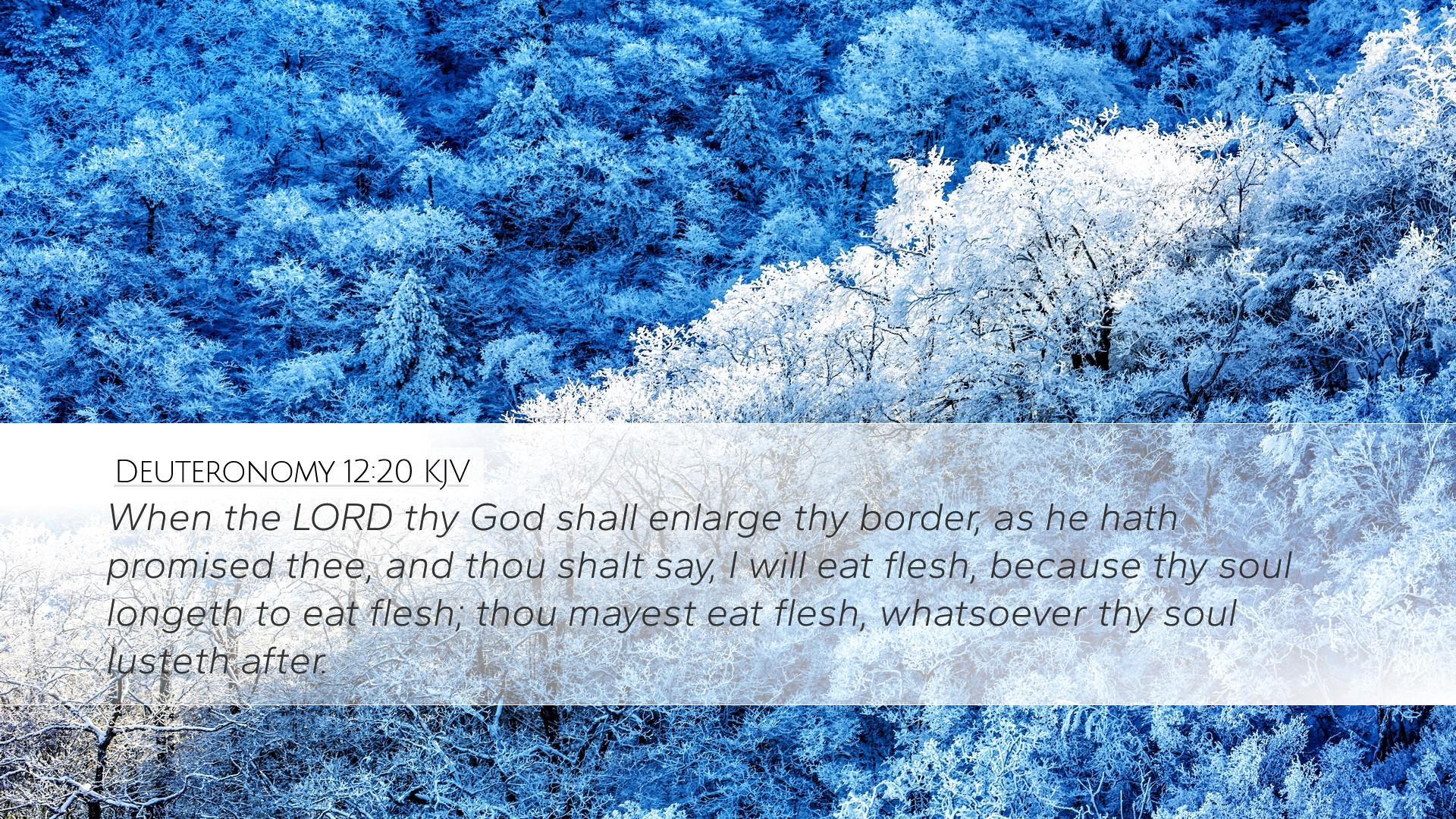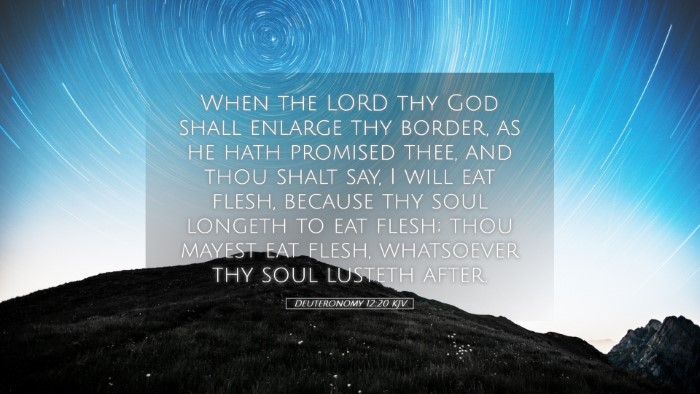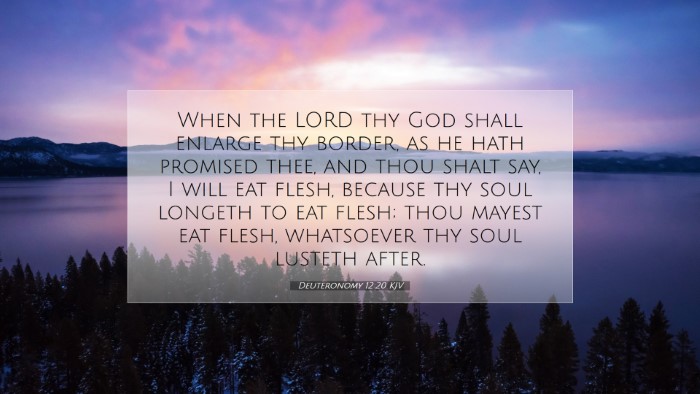Commentary on Deuteronomy 12:20
Bible Verse: "When the Lord your God enlarges your territory as He promised you, and you say, 'I want to eat meat,' because you crave meat, you may eat as much of it as you want." (Deuteronomy 12:20, NIV)
Introduction
Deuteronomy 12:20 presents a crucial moment in the Mosaic Law, addressing the Israelites’ relationship with food and God’s provisions. The verse signifies the transition from a high regard for spiritual sustenance to a more physical yearning for meat. This commentary seeks to extract profound theological insights and practical applications from this scripture through the lenses of historical and doctrinal perspectives provided in public domain commentaries.
Exegesis of the Verse
At its core, Deuteronomy 12:20 is a divine directive coupled with an acknowledgment of human desires. God encourages the Israelites that an enlargement of their territory will encompass a broader variety of resources, including meat, which suggests God’s providence and the allowance for human appetite.
Contextual Setting
Understanding the context is imperative. The Israelites, having wandered in the wilderness, were preparing to enter the Promised Land. The mention of “enlarging your territory” signifies God’s blessing and fulfillment of His promises. As Matthew Henry notes, this verse transitions the faithful from their previous restrictions toward a newfound abundance.
Theological Implications
1. God’s Provision: The enlargement of territory signals God’s abundant provision. Clarke highlights that God’s promises often come with accompanying gifts, showcasing His faithfulness to His covenant people.
2. The Nature of Desire: The phrase "crave meat" emphasizes the natural human inclinations. Albert Barnes elucidates that while the physical need for nourishment is acknowledged, it is imperative that such desires do not overshadow spiritual hunger.
3. Balance of Divine Command and Human Choice: God allows the indulgence of desires but within the context of divine commandments. The emphasis is placed on desire being introduced by divine enlargement rather than being solely self-driven.
Practical Applications
The ramifications of this verse go beyond the immediate concerns of dietary laws. The significance stretches into spiritual and practical realms for leaders and congregants alike.
- Understanding Human Nature: Pastors are reminded to recognize the fundamental aspects of human desires. In counseling and preaching, acknowledging the balance between spiritual and physical needs is essential.
- Encouragement of Covenant Relationship: Deuteronomy 12:20 serves as an affirmation of God's consistent relationship with His people, inviting believers to trust in His provision and to respond to their desires appropriately.
- Application of Spiritual Principles: The teaching encourages reflection on how spiritual abundance can be realized in physical forms, urging theological discourse on how faithfulness can lead to the fulfillment of earthly desires.
Conclusion
Deuteronomy 12:20, while seemingly straightforward, opens a portal to understanding God's character toward His people, the nature of desire, and how they are interwoven. Through the insights of prominent theologians, this verse seamlessly ties into broader themes of provision, covenant, and the human experience. As we contemplate these truths, may we approach our spiritual and physical appetites with wisdom, ensuring that our cravings align with God’s will and His provisions for our lives.


